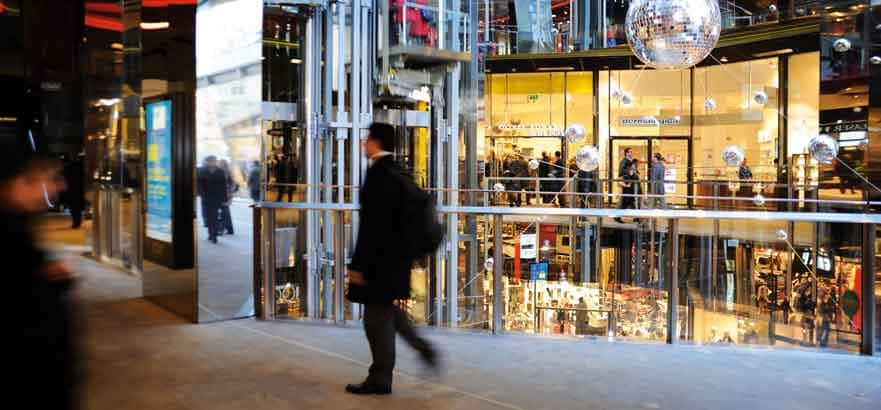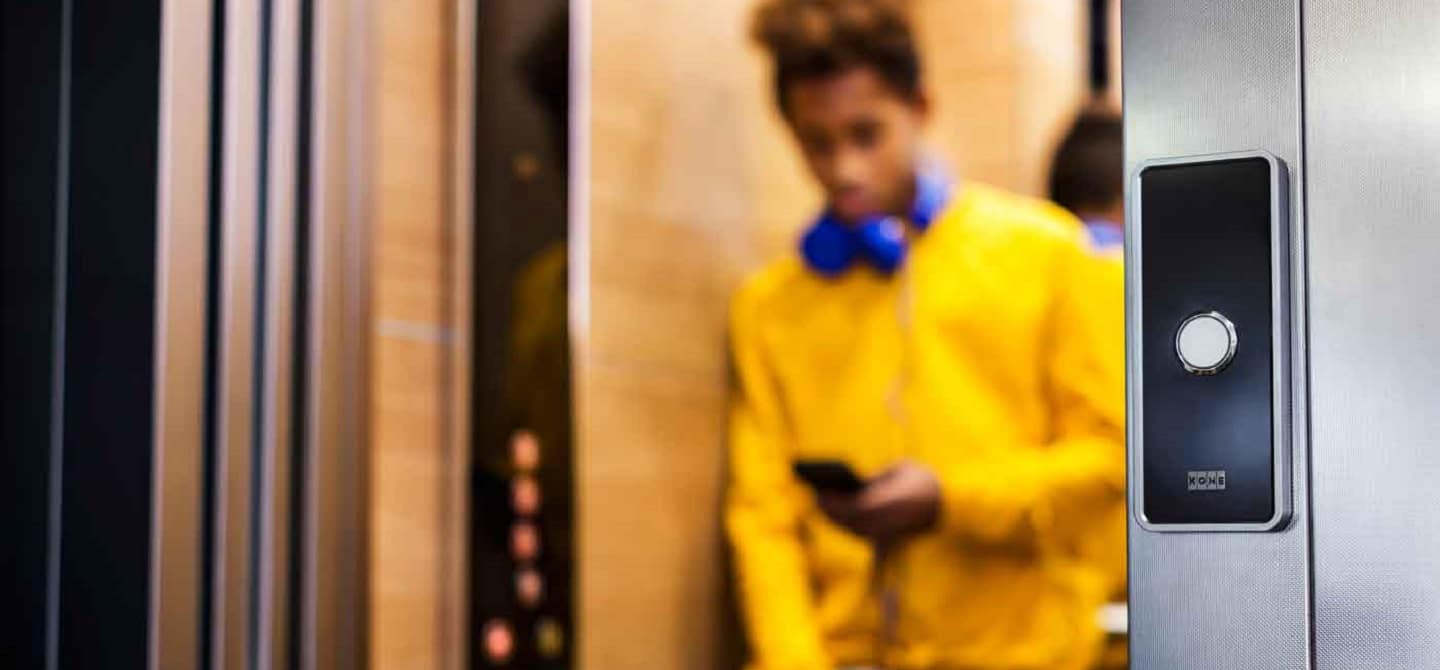Text: Silja Kudel
Imagine an elevator that predicts your arrival and stands ready, waiting to take you to your desired destination. It may even pause mid-way, allowing you to get a cup of coffee from your favorite café. Imagine an elevator that knows all your needs.
This vision of the not-too- distant future is painted by Timo Tiainen, director of concepts and design at KONE.
“Buildings are getting smarter and more automated. They can think for themselves and respond automatically to people’s needs.”
This is only the start of a seismic change underway in building automation. Intelligent building technology enables centralized control of everything from keyless access to temperature, lighting, and ventilation. In the future, intelligent signage systems will serve as personal navigation aids just like mobile devices, predicts Tiainen.
“People want easy navigability, but they also value their privacy: not everyone wants to provide free access to their personal device. A face recognition system may be able to track individuals without needing to know their identity.”
Life in the smart lane

By taking the stress out of navigation in public spaces such as malls, intelligent signage systems will offer abundant new commercial opportunities.
“Shoppers will be offered personalized tips borrowing strategies from the internet. After tracking someone who has just visited three shoe stores, the system might suggest: Would you like to see two more shoe stores, or how about taking a break?”
Tiainen and his team carry out extensive conceptual research on megatrends such as urbanization, population aging, and digitalization, developing future-forward solutions that are as intuitive to use as possible.
A good example is the new KONE Destination Operating Panel, which replaces traditional up and down buttons with an advanced touchscreen. As you approach the panel in the lobby, it wakes up and invites you to move a circle to your destination floor. The rest happens automatically. When your elevator arrives, it lights up as if to say, “I’m yours” and takes you directly to your floor without any further machine interfacing.
Touch therapy
“Touchscreens are influencing our interaction with devices more than anything I have seen in my whole career,” says Tiainen, adding this is also true in the world of elevators.
While swiping comes naturally to most of us, the relentless march of touchscreen technology is not universally embraced by the elderly and other groups with special needs.
Population aging is, in fact, one of the global megatrends driving demand for intelligent control systems. This applies especially in markets such as China, where millions of elderly people living in high-rises are becoming increasingly elevator-dependent. KONE strives to help them on board with extensive user experience research.
“We perform rigorous usability testing with different target groups to ensure that our solutions are equally comfortable for everyone to use, young and old,” says Tiainen.
While the future may look bright, one of the main challenges of using such smart technology is in handling the sense of losing control.
“Modern elevators operate so smoothly you can barely tell they are moving. A rolling light panel showing the precise position of the elevator can help to reassure people who feel nervous if there are no buttons inside the car,” explains Tiainen.
Better yet, a holographic avatar would be the ideal ambassador to help people embrace smart technology, he quips. “But really it’s just a matter of time before everyone gets used to smart buildings that predict our needs.”
